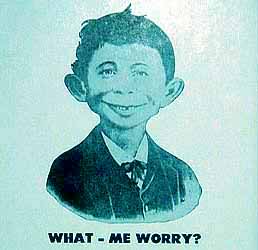Promoted to the Level of Incompetence
What’s the Big Idea?
Each year, the Ig Nobel awards recognize the most improbable achievements in science, medicine, and technology – the surprising findings that make you laugh, then think, according to the award’s presenters. Last year, an Italian paper won an award for pointing out that it’s better to promote people randomly than to promote them based on perceptions about their skills – research which should provoke more thought than laughter. Watch here:
The issue, says behaviorial economist Dan Ariely, is two-fold: first, promotions are often rewarded based exclusively on the results an individual achieves – or seems to achieve – without taking into consideration the myriad factors over which he or she had no control. It’s a myopic way of measuring performance, and it leads to the promotion of the luckiest over the best and brightest and most dedicated.
“Imagine you were in charge… [of a] seafood restaurant and you decided to open a new restaurant in the gulf” – a week before the BP oil spill, he says. “Would you get promoted after that? You just opened your restaurant, you spent a lot of money, all the seafood supply is dissolved and there’s no more tourists.” You might have been the most careful, wonderful employee, but ultimately, your actions, “from the outcome perspective, [were] awful.”
What’s the Significance?
Think about it – are you going after that promotion because you really want to put in more hours and challenge yourself with a supervisory role, or because you’ve always seen it as the next step? Perhaps a great manager is just that: a great manager, whose experience should be valued and shared without the unspoken expectation that she venture further and further up the ladder, always grasping at something just out of reach.





